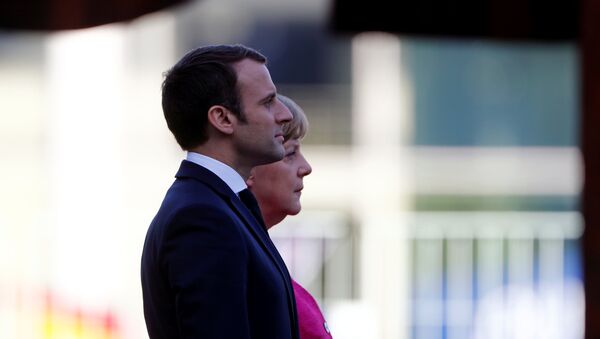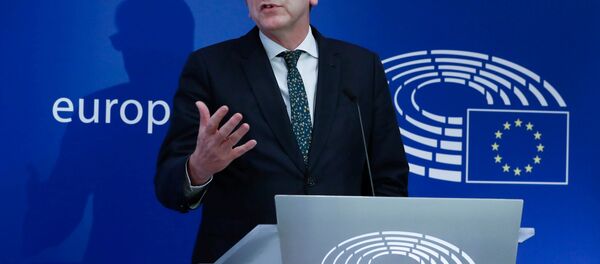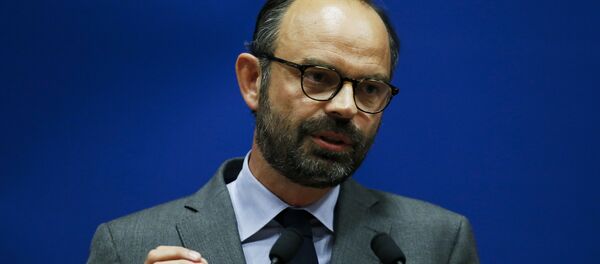Paris also wants Berlin to bankroll the most troubled economies of the eurozone. Moreover, France is not happy with a number of disadvantageous deals made within the EU. Currently, Berlin is not ready to make concessions but there is room for dialogue.
There is a tradition coming from the 1990s that a French president pays his first official foreign visit to Germany. Five years ago, Merkel met with newly-elected Francois Hollande whose economic plan was too leftist for Berlin.
Despite the fact that liberal democrat Macron is a more comfortable partner for Germany, the financial issue attracted increased attention even before the two leaders met.
On May 13, former Greek Finance Minister Yanis Varoufakis published an article on Macron’s economic policy. He wrote that he had confidential talks with Macron. According to the article, the new French president will push Germany to the federalization of the eurozone, which mean an increase in Germany’s support for other EU economies and Berlin’s expanded responsibility for the European currency.
Monetary federalization is the worst scenario for Berlin. Joint debt issuance would let some eurozone members benefit from lower risk premiums to Germany’s high credit ratings. However, in Berlin, Macron said that he did not support the idea.
"I have never defended [the idea of] Eurobonds or the mutualization of existing debt in the euro zone," he was quoted as saying by Reuters.
According to Le Figaro, during the meeting in Berlin, Merkel signaled that Paris should carry out a labor market reform.
"We have full confidence in the president that he knows what to do, that he’ll present it to us. And then we’ll discuss where we can cooperate well together," Merkel was quoted as saying by Bloomberg.
The measures proposed by Berlin is replication of the reform implemented in Germany in the early-2000s by Gerhard Schroder. Germany liberalized its labor code which prevented the economic crisis threat the country faced at the time. Currently, Germany’s economy is performing better than the French economy, with a 20 percent gap in living standards in favor of Berlin.
However, the viability of the German model in France is questionable. Unlike Germany, France is country with a strong left-democratic heritage. For example, even the far from being radical labor reform in 2016 resulted in mass protests across the country. Any further unpopular measures would risk undermining the position of the newly elected president.
Despite the difficulties remain between Berlin and Paris, the meeting between Macron and Merkel showed a certain level of confidence between the two leaders and their intention to meet each other halfway. Macron said he did not support the idea of joint Eurobonds while Merkel admitted of the possibility to review some of EU agreements.
Never miss a story again — sign up to our Telegram channel and we'll keep you up to speed!





